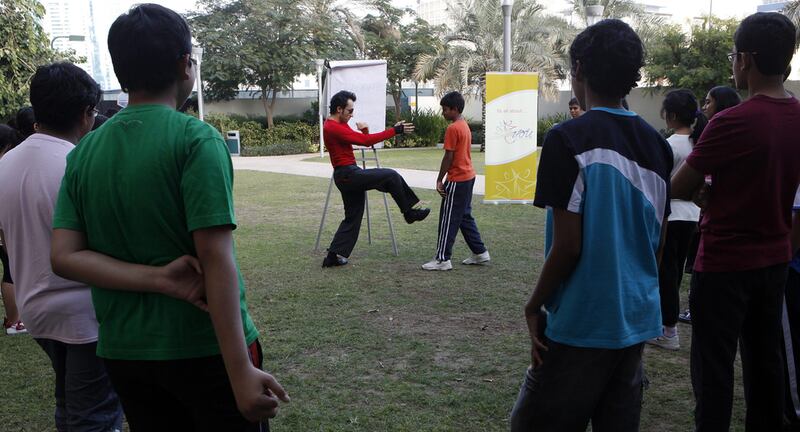The issue of bullying is a global one that requires greater attention. Bullying at school can have lifelong effects on its victims, increasing the risk of depression and anxiety. Studies also show that bullying has long-term negative effects on the bullies as well as their victims. With high rates of bullying at school reported in this country, it is clearly time to take the issue more seriously.
As The National reported yesterday, a recent study revealed that almost half of school-age children had witnessed some form of pupil-on-pupil violence in school, and that four in 10 primary and secondary pupils had used physical force on their peers, including kicking, punching and slapping. Experts have called for comprehensive anti-violence programmes to tackle the issue.
It can be argued that not all physical acts constitute bullying. Some rough-and-tumble can be expected in the playground, especially among boys, and it would be important to keep this in mind when establishing any anti-bullying programme. The authorities also need to keep up with new types of abuse such as cyberbullying, which involves abuse and shaming across social media.
There is currently no consistent approach to deal with bullying and aggression, according to Dr Samineh Shaheem, assistant professor of psychology at Hult International Business School in Dubai. Schools are left to devise their own procedures, meaning that some of them virtually ignore the issue, and others give it scant attention, at the cost of students’ well-being.
It’s important to create a school environment where children feel they are safe and respected by both their teachers and their peers. This cannot be achieved without enforcing the idea that bullying is unacceptable and can lead to serious consequences, including suspension and, in extreme circumstances, expulsion from school.
A zero-tolerance policy should apply across the country’s schools, but the challenge is to make the victims feel that it is safe to report abuse, and know that their report will be taken seriously. Equally, teachers must be confident that they have the backing of the school management, parents and wider community in their attempts to deal with the issue. It is here that the student contracts being introduced in some schools could play an important part, by making expected standards of behaviour clear to everyone in the school. Above all, the welfare of children must be paramount.





